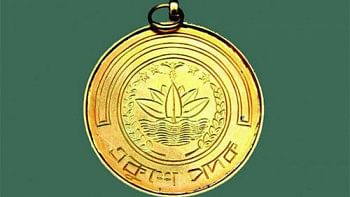University of Dhaka makes history for Bangladesh on the global stage: A reflective overview on the journey to Jessup 2023

The Philip C. Jessup International Law Moot Court Competition, also known as the Jessup Moot, is the oldest and largest international moot competition in the world and draws competitors from nearly 700 law schools in more than 90 countries on average. There is a consensus from many organisations and universities around the world that the competition is the most prestigious moot court competition in the world, which is also known as the world cup of Mooting or a grand slam moot. The majority of countries all over the globe organise national or regional rounds for each year's competition to choose the top team or teams that will compete in the international round in Washington, D.C., USA, which coincides with the annual meeting of the American Society of International Law.
The seventh Bangladesh national round of the Philip C. Jessup International Law Moot Court Competition occurred from February 9-11, 2023, at the Independent University, Bangladesh (IUB). Thirty-two law schools from across the country took part in this national qualifying round of Jessup. Jessup Bangladesh, in association with the U.S. Department of Justice, the Office of Overseas Prosecutorial Development (DOJ/OPDAT); the International Law Students Association (ILSA); and the Independent University, Bangladesh (IUB) organized the Bangladesh national qualifying rounds of Jessup for the seventh successive year. The team from the University of Dhaka (DU), Department of Law, consisting of Helal Morshed Omiyo, Maruf Hasan Tamal, Oishe Rahman, and Rafid Azad Saumik took part in this year's Jessup. The team won the championship, becoming the flag bearers of Bangladesh for the global rounds in Washington D.C. Apart from the championship trophy, prizes in the other categories were also handed out in the closing ceremony. Oishe Rahman won the best oralist, and Rafid Azad Saumik was listed as the second-best oralist. The grand finale of the competition was adjudicated by Honorable Justice Naima Haider, Judge, High Court Division, Supreme Court of Bangladesh, Honorable Justice Sheikh Hassan Arif, Judge, High Court Division, Supreme Court of Bangladesh and the Honorable Attorney General for Bangladesh Senior Advocate AM Amin Uddin. Stephanie Korzantes, the program director of International Law Students Association (ILSA); Christopher Howard, Resident Legal Advisor, OPDAT-US Department of Justice were also present at the closing ceremony.
During the global rounds in the USA, for the first time, Team Dhaka University achieved a historic milestone for Bangladesh by proceeding to the advanced rounds (Elimination round/ Top 48) by competing with teams from China, Finland, and Nigeria. This is the highest-ever team progression in this competition by a team representing Bangladesh. Additionally, their applicant memorial was also within the top 5 applicant memorials worldwide. Although different teams have participated in Jessup global rounds from Bangladesh since 2017, these feats have never been achieved before.
This year's Jessup problem encompassed topics on a peace treaty's interpretation, armed attacks on purportedly occupied territory, unilateral economic sanctions, and the legal repercussions of improperly disposing of hazardous waste. Researching and creating such a diversified memorial while taking it on a journey from the national to a global stage was an important leap for these students of the law department. The recognition and the journey itself underscore how important it is for law students to develop their knowledge intensively through mooting. Facing nations of various countries on a world stage and interacting with those law students in Washington DC gave Bangladesh an entry into the international legal community and the psyche of the global legal realm. Facing attorneys, judges, policymakers, and other various legal professionals from all over the world as moot round judges in the USA created a legal knowledge bank and experience within the students, which would be unachievable otherwise in an isolated environment.


 For all latest news, follow The Daily Star's Google News channel.
For all latest news, follow The Daily Star's Google News channel. 



Comments